Sepsis: Perforated bowel Barry mum told to drink tea
- Published
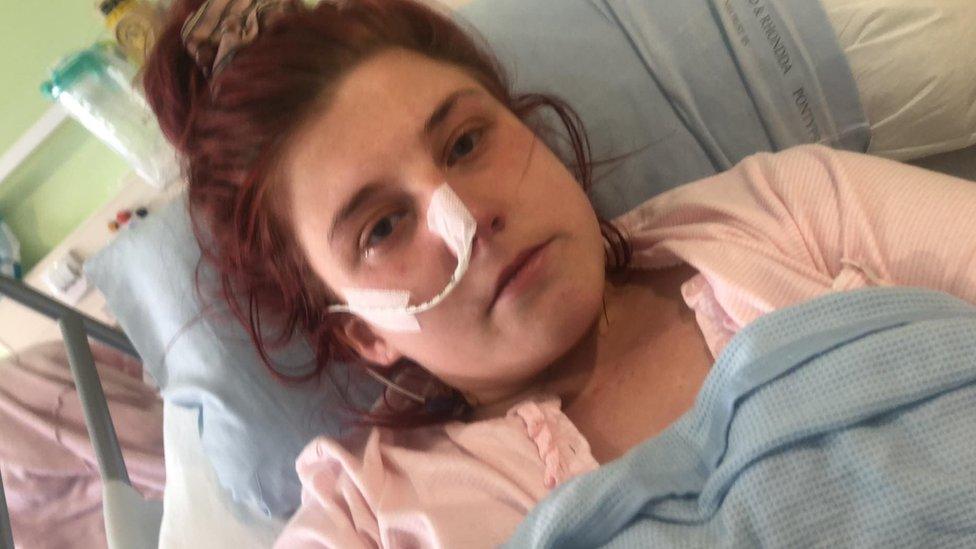
A mum suffered a perforated bowel and sepsis after being told she was anxious and should take constipation medication and drink peppermint tea.
Farrah Moseley-Brown was in "agonising pain" after having her second son, Clay, but the hospital sent her home.
Because of the delay in treating her, Ms Moseley-Brown, 28, of Barry, Vale of Glamorgan, now has a stoma.
Cardiff and Vale health board admitted failures in her care and gave its "sincere apologies".
Since the error, Ms Moseley-Brown has turned to TikTok to inform people about the dangers of sepsis, external and has had 15 million views one one video alone.
She was booked into University Hospital Wales, Cardiff, for a Caesarean on 7 May 2020.
After Clay was born, Ms Moseley-Brown lost about two-and-a-half pints of blood and needed further surgery to stem the bleeding.
"I felt really unwell and I said this to the nurses and the staff at the hospital which they didn't listen to. They kept saying it was after-pain but it was just agonising," Ms Moseley-Brown said.
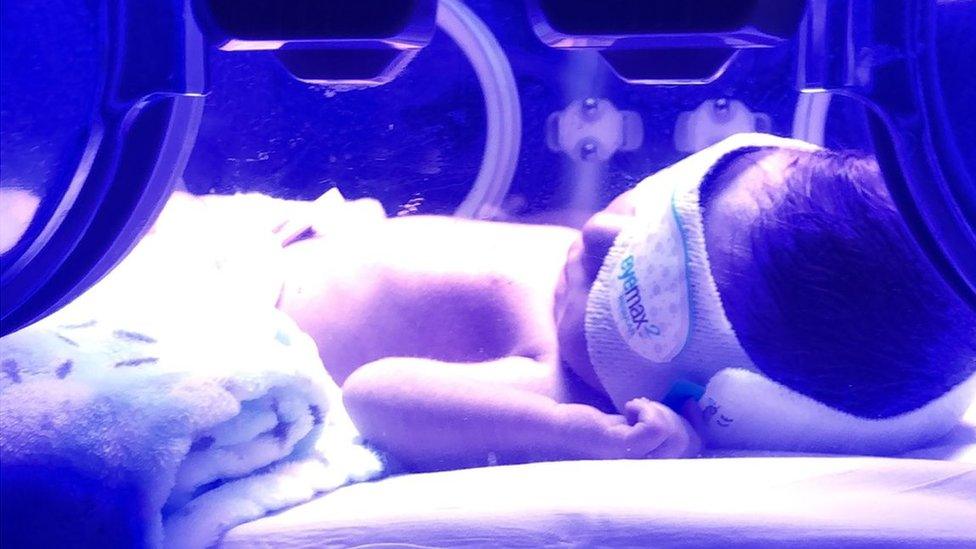
Farrah Moseley-Brown lost a lot of blood after giving birth to Clay
She was discharged three days later, despite her concerns, after being given medication for her constipation.
"Every single night they'd say 'she's anxious, she's just anxious'. I was just given tablets for constipation and was fed lots of peppermint tea."
Two days later, she returned to hospital with stomach pain and vomiting and had a stomach X-ray and was given more treatment for constipation before being sent home again on 15 May.
Only after her third trip to the hospital, the following day, was she diagnosed with a perforated bowel and sepsis after she was struggling to breathe.
"I had about five minutes to absorb what was going to happen," Ms Moseley-Brown said.
"He explained the procedure to me and at that point I didn't even know what a colostomy bag was. The doctor said, 'you're very poorly and it's a very risky operation'. I could have died."
The impact of the operation has been life changing for Ms Moseley-Brown.
"As a woman, and being the age I am now, very self-conscious," she said.
"The amount of damage they have done with scarring and stuff, I would need a lot of plastic surgery to fix it.
"I think they thought I was a mum who couldn't deal with the after pains of the C-section."
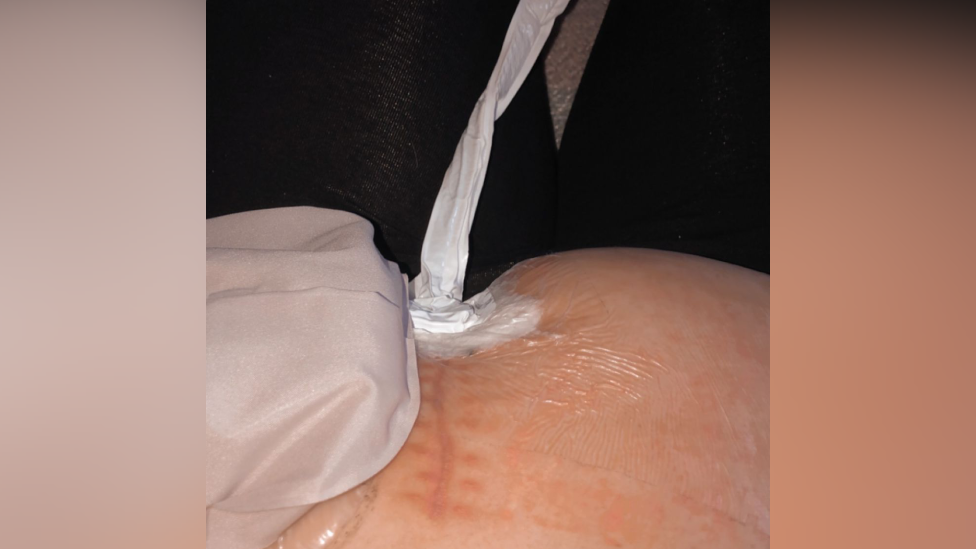
The 28-year old said she was not taken "seriously" when she said she felt unwell
Ms Moseley-Brown has osteogenesis imperfecta, external, more commonly known as brittle bone disease.
This can cause an increased risk of complications during pregnancy and birth and she believes she was not cared for correctly.
Cardiff and Vale health board said the perforation and events that followed would not have happened if further imaging was done and surgical opinion was arranged.
James Pink, an associate solicitor for Irwin Mitchell acting for Ms Moseley-Brown, said the health board "failed to appropriately review"her, leading to the "traumatic" perforation.
He added: "She did not undergo the investigations that she perhaps needed, which would have resulted in more treatment that could have helped resolve what was worsening constipation."
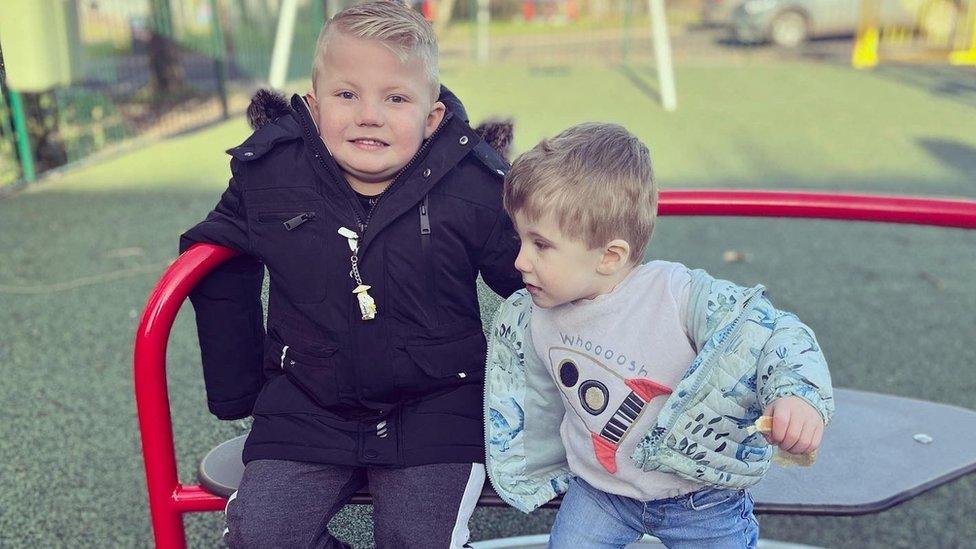
Farrah Moseley-Brown has two sons - Cohan (left) and Clay
The health board said: "We reiterate our sincere apologies to Ms Moseley-Brown's for her maternity care experience whilst at the University Hospital of Wales in 2020."
It said it could not comment on individual cases but when "concern was raised", a "formal litigation process" began.
The health board added that "safe, effective care" to patients is "of paramount importance" and it was "fully committed to continually improving the care".
Since Ms Moseley-Brown's case, University Hospital Wales has been found to have wider failings in its maternity care, external.
Since recovering from sepsis, Ms Moseley-Brown said raising awareness on TikTok had been one of the positives to come out of her ordeal.
"So many women were really supported by it and I had messages from all over the world. I had emails from a lady in South Africa who had told me her story.
"All these women explained that they needed this advice. They needed these signs. They needed somebody to talk to about it."
- Published3 March 2023

- Published8 July 2023
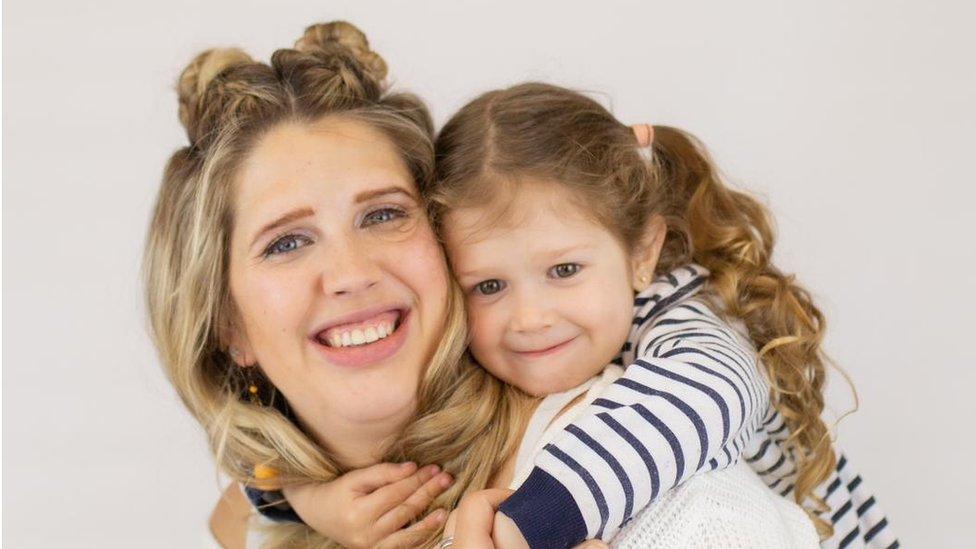
- Published6 April 2023
